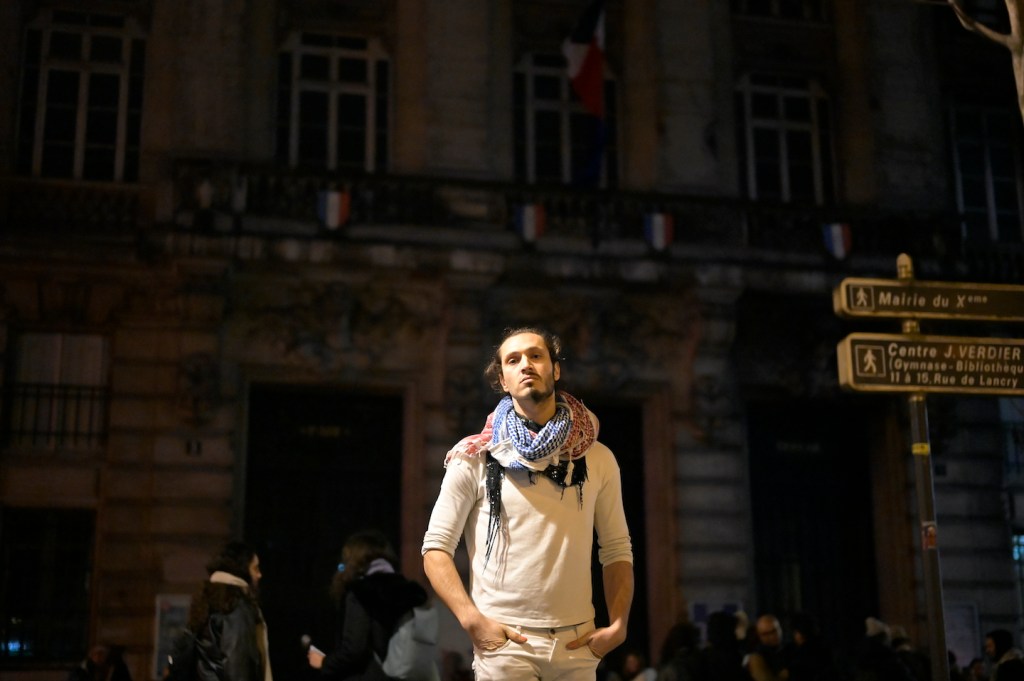
Brooklyn Fink faces mischief charges in BC court today
When reports that someone burned a pride flag on a university campus surfaced in February, it seemed like a pretty clear-cut case of close-minded bigotry. The University of British Columbia obviously condemned the incident, calling it “an act of hate and in contravention of the values of equity, inclusion, and respect deeply held by the university community.”
And while hate or close-mindedness may have played a role, we’ve since learned the case is anything but clear cut. Brooklyn Fink, a transsexual student who feels “outed” by queer activism, took responsibility for the act last month, and told VICE she felt triggered by the rainbow flag’s presence. Her story raises questions about how inclusive queer communities should respond when people just don’t want to be included.
Videos by VICE
“I would like it if transsexual wasn’t included in LGBT,” she told VICE.
In case you need a refresher: transsexual is a term we’ve had for at least half a century, and refers to people whose gender doesn’t match their assigned sex, many of whom pursue reassignment treatment and surgery. Transgender, on the other hand, is a relatively new umbrella term that includes all kinds of of expressions, including transsexual. Trouble is, Fink says her identity is much closer to “straight” than “queer.”
“Twelve years ago I was just a tall female and nobody knew,” Fink said. “If I knew I’d be lumped in with the gays and lesbians, instead of being accepted as a female, then I never would have gone through the process. They’ve made me stop half-way though.”
Fink’s views come from her experience transitioning long before politicians debated about all-gender bathrooms. Now, with the global spotlight on gender-nonconforming identities, Fink feels misgendered and threatened.
“These people do lots of the talking,” she said of queer activists. “Transsexual patients [like me] try to stay anonymous and silent, and they’re bringing attention onto us.”
Fink has been suspended from UBC and faces mischief charges for setting the rainbow flag on fire. Today she’ll ask a judge to dismiss those charges, on the grounds that the school is already handling the case. A university decision is expected next month.

Justin Trudeau waves the flag with a new trans rights bill today. Photo by Justin Ling
Her day in court comes on the same day Prime Minister Justin Trudeau is expected to introduce a bill protecting trans rights under the Canadian Human Rights Act. Though its aim is to protect people like Fink, she says the legislation will do some harm by singling transitioners out and adding the label trans. Citing a well-known case in BC, she argues for the right of young Harriette Cunningham to identify as simply a “girl.” The 13-year-old Cunningham has so far embraced a transgender identity, however.
Fink has since expressed regret for some of her actions, but her stance against “LGBT hegemony” has grown deeper roots.
“Burning it was extreme,” she said. “I didn’t think it through hard enough. Instead of burning the flag, which is destruction of property, I should have come prepared to remove it from the pole… I should have just folded it up and left it on the ground.”
Before her flag protest, Fink says she’d already faced discrimination “from every angle”—from bigots and well-meaning trans advocates alike. Even when someone reaches out to her to say, “Hey honey, I’m trans too,” Fink feels the sting of someone reading her appearance in a different way than she identifies.
She likens her transsexual status to a medical condition, one that she prefers to keep private. But after taking such dramatic action against a queer symbol, Fink’s name and transition history were both published widely in the media. She claims university staff played a role in “doxxing” her before she came clean.
Related: Watch our documentary on Canadian transgender health access, ‘On Hold’
Fink said she suffered severe mental health symptoms after the story broke, and checked herself into a hospital that day. “Now I’m humiliated,” Fink said of the incident, “the whole world knows my secret—thanks a lot.”
With her name now in the Vancouver spotlight, Fink says she’s considering a move to Quebec, where she might pursue an art degree. She says she’s still searching for a “safe space” like the ones she sees queer communities enjoying on UBC’s campus.
Those communities would likely know a thing or two about Fink’s feelings of alienation. It’s why things like International Day against Homophobia, Transphobia, and Biphobia exist. But because of her identity and beliefs, Fink doesn’t have this or any community to fall back on.
Follow Sarah Berman on Twitter.



